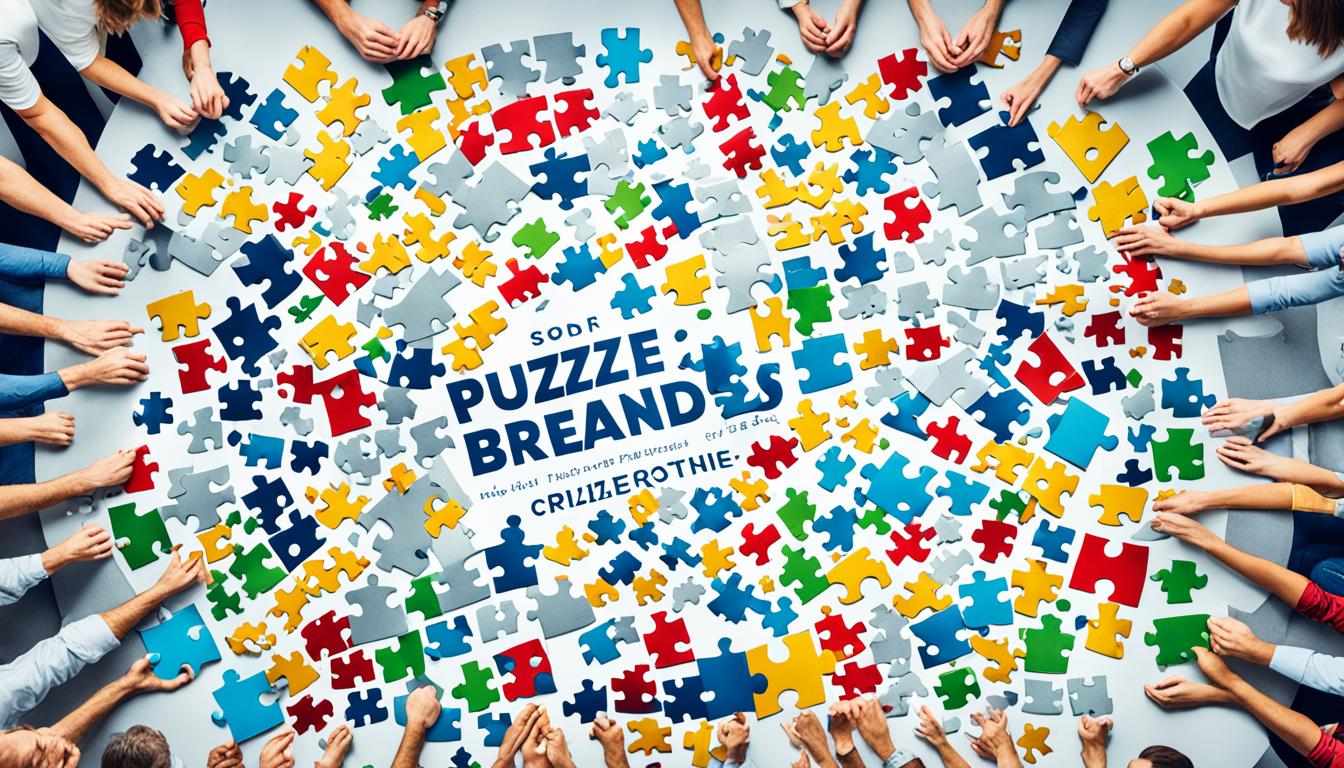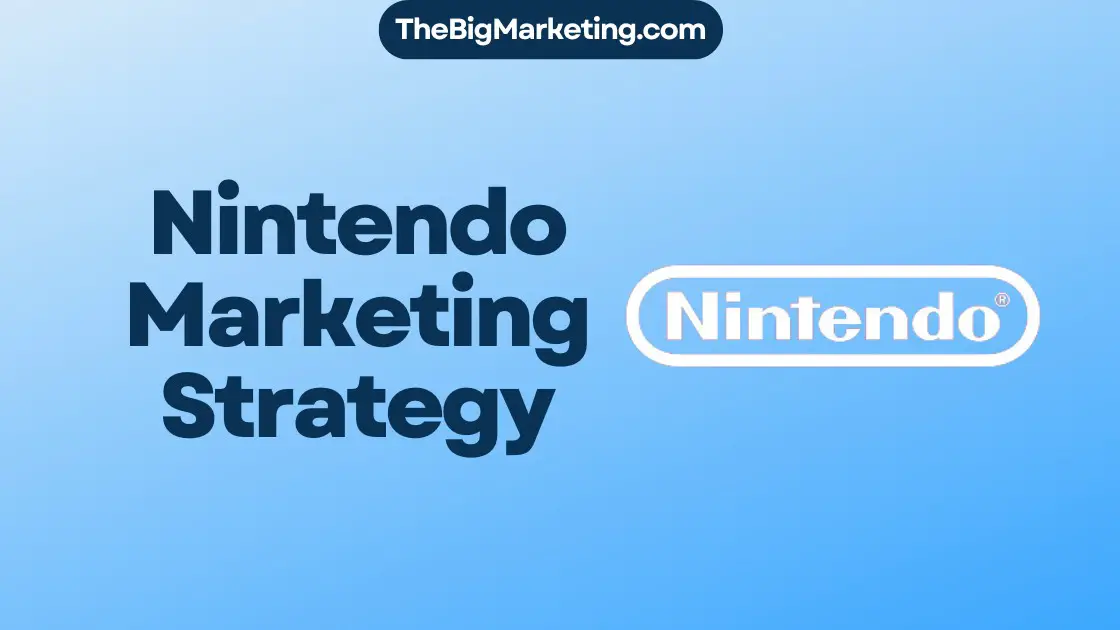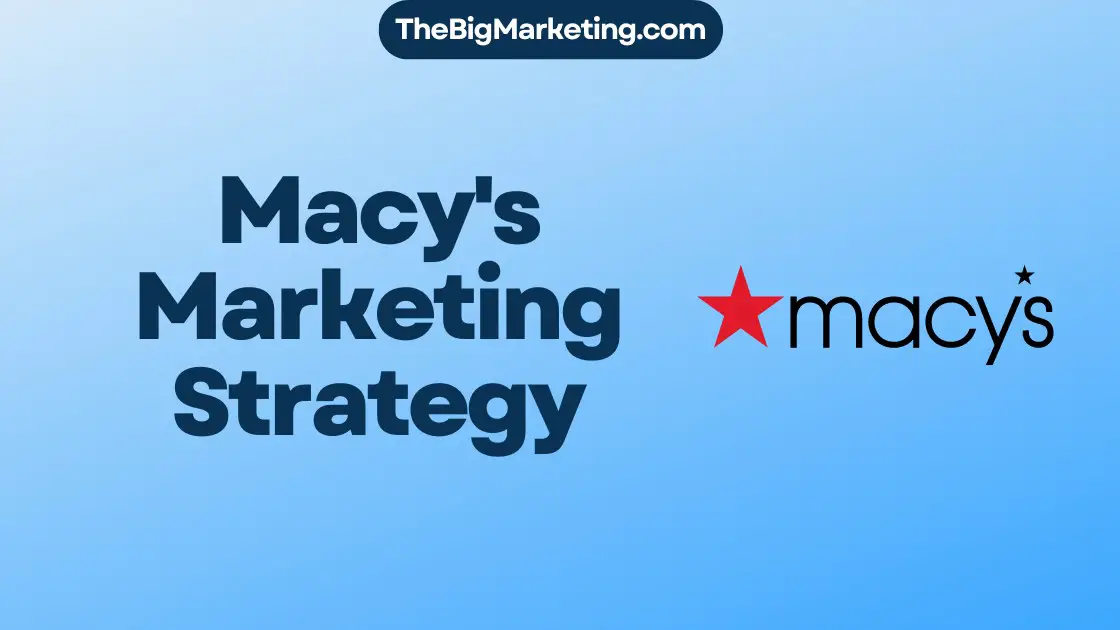When it comes to marketing, understanding your target audience is key. In today’s digital age, two major generations that businesses need to focus on are Gen Z and Millennials. These two groups are highly connected to technology, but they have different attitudes, preferences, and behaviors that need to be taken into consideration when developing marketing strategies.
Gen Z, born between 1997 and 2012, is known for their frugality and practicality. They prioritize saving money and value authenticity in their interactions with brands. On the other hand, Millennials, born between 1981 and 1996, are more likely to respond to deals and offers. They focus on buying products and services that provide positive experiences.
When it comes to social media, each generation has its own preferences. Gen Z favors platforms like TikTok and Snapchat, while Millennials are more engaged on Facebook and Instagram. These differences in social media usage and content consumption should be considered when planning digital marketing strategies.
To effectively reach and engage with these generations, businesses should employ target audience segmentation and consumer behavior analysis. By understanding the unique characteristics of each age group, marketers can tailor their online advertising tactics and marketing campaigns to resonate with their target audience.
Keeping up with the latest marketing trends is also essential. Analyzing and staying updated on the latest trends can help businesses optimize their strategies and stay ahead of the competition. Additionally, personalization is crucial in marketing to Gen Z and Millennials. Creating personalized marketing campaigns that speak to their interests and values can significantly enhance engagement and conversions.
Key Takeaways:
- Gen Z and Millennials have different attitudes towards money and technology.
- Understanding the preferred social media platforms of each generation is crucial for effective engagement.
- Target audience segmentation and consumer behavior analysis are vital for successful marketing.
- Keeping up with marketing trends and personalizing campaigns is essential.
- Effective marketing strategies require a deep understanding of the differences between these generations.
Factors that Differentiate Millennials and Gen Z
When it comes to marketing to different generations, understanding the factors that differentiate them is crucial. Two key generations that businesses target are millennials and Gen Z. While they share certain similarities, such as their high level of connectivity to technology, there are distinct differences in their attitudes towards technology, economic outlook, consumer spending habits, and financial optimism.
Technology Attitudes
Millennials, also known as Generation Y, witnessed the rapid rise of technology during their formative years. They experienced the transition from DVD players to streaming services and dial-up internet to mobile connectivity. This exposure to emerging technologies has shaped their adaptable and tech-savvy nature.
On the other hand, Gen Z, also referred to as the iGeneration or Zoomers, has grown up in a digital world. They have never known a time without smartphones, social media, and instant access to information. This constant exposure to technology has made Gen Z more dependent on digital platforms for communication, entertainment, and shopping.
Economic Attitudes and Spending Habits
Millennials and Gen Z also exhibit differences in economic attitudes and consumer spending habits. Millennials tend to prioritize experiences and are willing to spend on products and services that provide positive experiences. They value brands that align with their values and offer personalized experiences.
On the other hand, Gen Z is more focused on practicality and saving money. Having grown up during the economic downturn and witnessing the financial struggles of their parents, they tend to be more financially cautious. Gen Z considers factors such as price, value, and utility when making purchasing decisions.
Financial Optimism
The economic landscape during certain periods has influenced the financial optimism of millennials and Gen Z. Millennials graduated into a world affected by the Great Recession of 2008. This experience has made them more cautious and less optimistic about their financial future.
Gen Z, on the other hand, grew up during the aftermath of the recession. They have seen the impact it has had on society and are more driven to be financially responsible. This cautious and pragmatic approach contributes to their focus on saving money and planning for the future.
Understanding these generational differences is essential for businesses to develop targeted marketing strategies. By acknowledging their distinct attitudes towards technology, economic outlooks, spending habits, and financial optimism, businesses can tailor their marketing messages to resonate with each generation effectively.
How to Market to Millennials
When targeting millennials, it is essential to implement effective millennial marketing strategies that resonate with their unique preferences and behaviors. Millennials are a highly influential consumer group, representing a significant portion of the market. To successfully engage with this demographic, brands should focus on various key elements:
Building Brand Experience
Millennials value memorable brand experiences that go beyond a simple transaction. To capture their attention, companies should strive to create a holistic brand experience that aligns with their values and aspirations. This involves delivering exceptional customer service, providing relevant and engaging content, and designing user-friendly interfaces.
Instant Gratification
Instant gratification is a driving force for millennials. They expect quick and convenient experiences, whether it’s making online purchases, accessing customer support, or engaging with brands on social media. By prioritizing speed and efficiency in their marketing efforts, businesses can cater to this desire for immediate satisfaction.
Social Media Engagement
Millennials are avid users of social media platforms. To effectively market to this demographic, brands should develop a strong social media presence and engage with millennials through authentic and interactive content. Utilizing platforms such as Instagram, Facebook, and Twitter can help drive brand awareness and foster meaningful connections.
Influencer Marketing
Influencers play a significant role in millennial marketing strategies. Millennials trust the recommendations and opinions of influencers they admire. Collaborating with relevant influencers can help brands tap into their established follower base, gain credibility, and increase brand awareness among millennials.
By implementing these millennial marketing strategies, brands can establish a strong presence among millennials and create lasting connections that drive customer loyalty and advocacy.
How to Market to Gen Z
When targeting Gen Z, it is crucial to understand their unique preferences and behaviors in order to develop effective marketing strategies. Gen Z is highly tech-savvy and values short-form content and video marketing. Platforms like TikTok and Snapchat are particularly popular among this demographic, making them ideal channels to incorporate into marketing campaigns.
In addition to leveraging short-form content and video marketing, influencer marketing plays a significant role in capturing the attention of Gen Z. This generation tends to trust and engage with content created by their favorite influencers, making influencer collaborations a valuable strategy for reaching and resonating with this audience.
A strong social media presence is essential for successfully marketing to Gen Z. This generation spends a significant amount of time on various social media platforms, actively engaging with content and seeking authentic connections with brands. By establishing a strong social media presence, businesses can effectively reach and engage with Gen Z.
Overall, successful marketing to Gen Z requires incorporating short-form content, video marketing, influencer collaborations, and maintaining a strong social media presence. By understanding the unique preferences of Gen Z and leveraging these strategies, businesses can effectively connect with this tech-savvy generation.
Gen Z Marketing Strategies
| Strategies | Description |
|---|---|
| Short-form content | Create concise and attention-grabbing content tailored to the preferences of Gen Z, focusing on platforms like TikTok and Snapchat. |
| Video marketing | Utilize engaging and visually appealing videos to capture the attention of Gen Z, ensuring content is optimized for mobile viewing. |
| Influencer marketing | Collaborate with influencers who resonate with Gen Z, as they can effectively promote products or services and establish trust with this audience. |
| Social media presence | Establish a strong presence on social media platforms popular with Gen Z, engaging with them authentically and building a community. |
Note: The table above outlines key Gen Z marketing strategies, while the image provides a visual representation of Gen Z marketing trends.
How to Market to Both
To effectively market to both Gen Z and millennials, it is important to create personalized campaigns that cater to the preferences and behaviors of each generation. Leveraging data-driven insights and marketing automation tools can help create targeted and personalized campaigns. Additionally, incorporating user-generated content and purpose-driven marketing initiatives can attract and resonate with both generations.
Personalization is key when marketing to Gen Z and millennials. These generations value authenticity and want to feel like brands understand their unique needs and interests. By tailoring campaigns to their specific preferences, businesses can establish stronger connections and increase engagement.
Data-driven marketing is essential for understanding the preferences and behaviors of Gen Z and millennials. It provides valuable insights into their demographics, interests, and purchasing habits. Using this data, businesses can create targeted campaigns that resonate with each generation.
Marketing automation tools are also valuable for streamlining campaign execution and ensuring personalized content delivery. These tools enable businesses to automate processes such as email marketing, social media scheduling, and personalized messaging, allowing for more efficient and effective campaign management.
Incorporating user-generated content (UGC) is another effective strategy for marketing to both generations. UGC adds authenticity and credibility to campaigns, as it is created by real customers or influencers. By encouraging and showcasing UGC, businesses can tap into the power of social proof and foster a sense of community among their target audience.
Purpose-driven marketing initiatives resonate with both Gen Z and millennials. These generations are socially conscious and want to support brands that align with their values. By incorporating purpose-driven messaging and initiatives into campaigns, businesses can demonstrate their commitment to making a positive impact, which can attract and resonate with both generations.
Example of a Cross-Generational Marketing Campaign
To illustrate how cross-generational marketing can be implemented, let’s consider an example in the retail industry. A clothing brand can develop a campaign that highlights its commitment to sustainable fashion, which aligns with the values of both Gen Z and millennials.
| Gen Z | Millennials | |
|---|---|---|
| Key Message | Shop responsibly and support sustainable fashion | Experience the latest fashion trends while reducing your environmental impact |
| Marketing Channel | TikTok, Instagram | Instagram, YouTube |
| Campaign Elements | Collaboration with Gen Z influencers to showcase sustainable fashion looks | Video series featuring influential millennials sharing their sustainable fashion journey |
| Call to Action | Shop now and contribute to a more sustainable future | Join the sustainable fashion movement and shop our latest collection |
This example demonstrates how a brand can create a campaign that appeals to both generations by focusing on their shared values and interests. By leveraging the power of cross-generational marketing and implementing personalized, user-generated content, and purpose-driven strategies, businesses can effectively engage with both Gen Z and millennials, driving customer loyalty and business growth.
Tips for Knowing Your Audience
Understanding your target audience is essential for developing effective marketing strategies. By employing audience segmentation, data-driven marketing, metrics tracking, and customer relationship management (CRM), you can gain valuable insights into the preferences and behaviors of both Gen Z and millennials.
Audience Segmentation
One of the key steps in knowing your audience is segmenting them based on various factors such as demographics, psychographics, and behavior. This process involves dividing your target market into distinct groups with similar characteristics and preferences. By segmenting your audience, you can tailor your marketing messages and campaigns to each group, enhancing the effectiveness of your strategies.
Data-Driven Marketing
Data-driven marketing involves harnessing the power of data and analytics to drive decision-making. By analyzing relevant data points such as consumer behavior, purchase history, and engagement metrics, you can uncover valuable insights about your audience. These insights can inform your marketing strategies, enabling you to create targeted campaigns that resonate with your target market.
Metrics Tracking
Tracking relevant metrics is crucial for understanding the impact of your marketing efforts and measuring the success of your campaigns. By monitoring key performance indicators (KPIs) such as website traffic, conversion rates, social media engagement, and customer retention rates, you can assess the effectiveness of your strategies and make data-driven adjustments to optimize your results.
Customer Relationship Management (CRM)
A robust CRM system allows you to collect, manage, and analyze customer data. By implementing a CRM system, you can gain valuable information about your target audience, such as their demographics, purchase history, and interactions with your brand. This data enables you to personalize your marketing efforts, build stronger relationships with your customers, and deliver more relevant and targeted messages.
| Benefits of Audience Segmentation, Data-Driven Marketing, Metrics Tracking, and CRM |
|---|
|
Millennials vs. Gen Z: A Comparison
When it comes to marketing efforts, understanding the differences between millennials and Gen Z is crucial. Both generations have a strong presence on social media, but their behavior and preferences differ in significant ways. By tailoring marketing strategies to these generational disparities, businesses can effectively reach and engage with each group.
1. Social Media Usage
Both millennials and Gen Z are highly active on social media platforms, but there are notable distinctions in their usage patterns. Gen Z spends more time on social media, with an average of X hours per day, compared to millennials who spend an average of Y hours per day. Gen Z is more likely to engage with content actively, such as liking, commenting, and sharing, reflecting their desire for interactive experiences.
2. Attention Spans
Another significant difference between millennials and Gen Z is their attention spans. Millennials generally have longer attention spans and are more receptive to long-form content, such as blog articles and videos. On the other hand, Gen Z has a shorter attention span and prefers bite-sized, easily digestible content like short videos and memes. To capture and sustain their attention, marketers must create concise and captivating content tailored to Gen Z’s preferences.

3. Marketing Preferences
The marketing preferences of millennials and Gen Z also diverge. Millennials are more likely to respond to personalized marketing campaigns that offer unique experiences and authenticity. They appreciate brands that align with their values and engage with them on a deeper level. In contrast, Gen Z is attracted to brands that understand and address their practical needs and desire for transparency. They respond well to influencer marketing and user-generated content that reflects their interests and aspirations.
| Millennials | Gen Z | |
|---|---|---|
| Social Media Usage | Y hours per day | X hours per day |
| Attention Spans | Longer attention span | Shorter attention span |
| Marketing Preferences | Respond to personalized campaigns, value authenticity | Attracted to practical brands, prefer influencer marketing and user-generated content |
The Importance of Digital Marketing
In today’s digital age, digital marketing plays a crucial role in reaching and engaging with both Gen Z and millennials. With their heavy reliance on digital channels, businesses must embrace digital marketing strategies to effectively connect with these influential consumer groups.
Social Media Marketing
Social media marketing is a key aspect of digital marketing when targeting Gen Z and millennials. These generations are active on various social media platforms, such as Facebook, Instagram, Twitter, and TikTok. By developing a strong social media presence, businesses can engage with their target audience, showcase their brand, and promote their products or services.
Online Reviews
Reviews influence purchasing decisions for both Gen Z and millennials. These generations trust online reviews from their peers and influencers more than traditional advertising methods. By encouraging and managing online reviews, businesses can build trust and credibility, attracting and retaining customers.
Influencer Marketing
Influencer marketing is highly effective in capturing the attention of Gen Z and millennials. These generations value the opinions and recommendations of influencers they follow. By collaborating with relevant influencers, businesses can expand their reach, increase brand awareness, and promote their products or services to a targeted audience.
Content Marketing
Content marketing is essential in digital marketing efforts. Creating valuable and engaging content that resonates with Gen Z and millennials can attract and retain their attention. Businesses should focus on producing relevant blog posts, videos, infographics, and other forms of multimedia content that provide value and address the needs and interests of their target audience.
| Benefits of Digital Marketing | Social Media Marketing | Online Reviews | Influencer Marketing | Content Marketing |
|---|---|---|---|---|
| Allows businesses to reach a wider audience | Enables targeted advertising and engagement | Builds trust and credibility | Expands reach and increases brand awareness | Positions businesses as thought leaders |
| Provides measurable results and insights | Facilitates real-time customer interaction | Influences purchasing decisions | Creates authentic and relatable brand associations | Drives organic traffic and conversion |
| Offers cost-effective marketing solutions | Allows for precise audience targeting | Generates user-generated content | Fosters stronger customer relationships | Encourages social sharing and engagement |
Conclusion
Marketing to Gen Z and millennials requires a deep understanding of the unique characteristics and preferences that distinguish these two generations. While they share a heavy reliance on social media, there are significant differences in attitudes towards technology, spending habits, and marketing preferences.
To effectively engage with both Gen Z and millennials, businesses must develop tailored marketing strategies that align with these generational differences. For Gen Z, short-form content and video marketing on platforms like TikTok and Snapchat are highly effective. Collaborating with influencers and maintaining a strong social media presence are also essential. On the other hand, millennials respond well to personalized campaigns, social media engagement, and influencer collaborations that provide authentic experiences.
Understanding these generational distinctions allows businesses to implement effective marketing strategies that can drive growth among both Gen Z and millennials. By creating personalized, data-driven campaigns that resonate with the unique preferences and behaviors of each generation, businesses can connect with their target audiences and achieve long-term success in the ever-evolving digital landscape.
FAQ
What are the key factors that differentiate millennials and Gen Z?
Millennials and Gen Z have different attitudes towards technology and money. While millennials grew up with emerging technologies like DVD players and dial-up internet, Gen Z has always been surrounded by smartphones and streaming services. Additionally, millennials tend to focus on buying products and services that provide positive experiences, while Gen Z is more focused on practicality and saving money.
How can I effectively market to millennials?
To market to millennials, it is important to focus on building a brand that offers a pleasant customer experience and provides instant gratification. Social media marketing, influencer collaborations, and personalized and engaging content that aligns with their values and interests can help attract and retain millennial customers.
What strategies should I use to market to Gen Z?
Gen Z is highly tech-savvy and values short-form content and video marketing. Platforms like TikTok and Snapchat are popular among Gen Zers, so incorporating these platforms and influencer marketing into your strategy can be effective. Having a strong social media presence is crucial for reaching and engaging with Gen Z.
How can I effectively market to both Gen Z and millennials?
To market to both Gen Z and millennials, it is important to create personalized campaigns that cater to the preferences and behaviors of each generation. Leveraging data-driven insights, user-generated content, and purpose-driven marketing initiatives can attract and resonate with both generations.
What tips can help me better understand my target audience?
Understanding your target audience requires audience segmentation, using data-driven insights, and tracking relevant metrics. Implementing a customer relationship management (CRM) system can provide valuable information about the demographics and engagement levels of your target market.
What are the key differences between millennials and Gen Z?
While both generations have a strong presence on social media, Gen Z spends more time on social media platforms and engages more actively with content. Gen Z also has a shorter attention span compared to millennials.
Why is digital marketing important in targeting Gen Z and millennials?
In today’s digital age, digital marketing plays a crucial role in reaching and engaging with both Gen Z and millennials. Social media marketing, online reviews, influencer collaborations, and content marketing are all important strategies for targeting these generations.
How should I approach marketing to Gen Z vs millennials?
Marketing to Gen Z vs millennials requires understanding the unique characteristics and preferences of each generation. By tailoring marketing strategies to align with these differences, businesses can effectively engage with both generations and drive growth.




